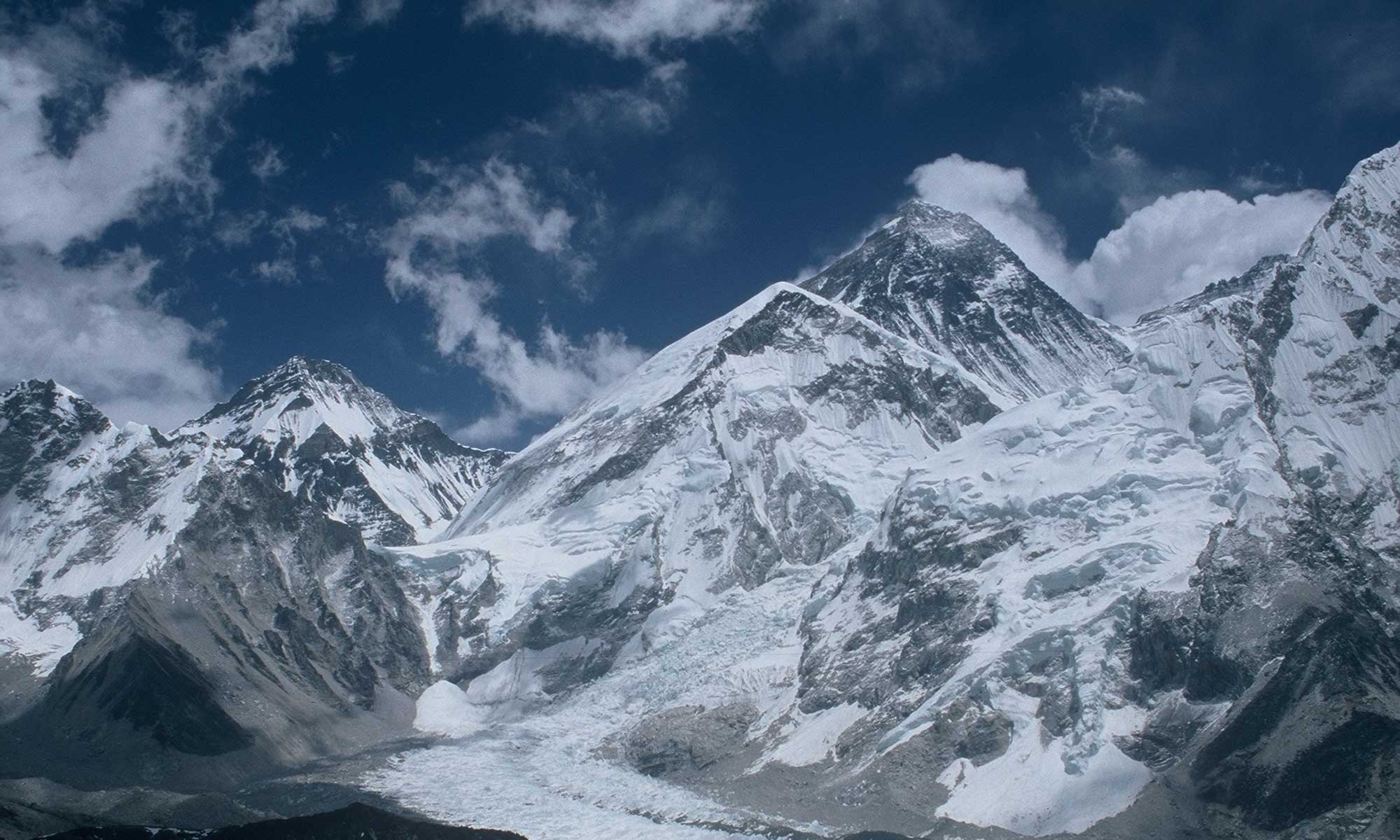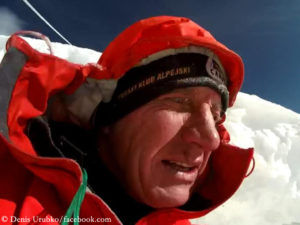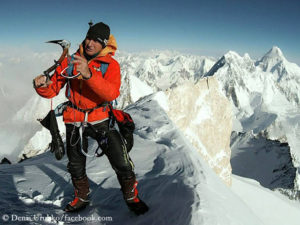“(It) Is Enough!” That Denis Urubko with this statement on Monday did not only mean the failed winter expedition on Broad Peak, but also his eight-thousander career, was not really clear. But then it gradually seeped through the social networks: The 46-year-old says goodbye to expeditionary mountaineering after two decades. “I plan to stop risky mountaineering, in any mountains,” Denis confirmed yesterday to the Spanish website desnivel.com. “I want to walk on hills and sport climbing.” He will probably do the latter mainly with his partner, the Spanish climber Maria “Pipi” Cardell.
The Russian, who also has a Polish passport, has stood on the top of eight-thousanders 22 times, most recently in summer 2019, when he solo climbed a new route on Gasherbrum II.
Inspired by Reinhold Messner
Urubko’s passion for the mountains awakened early when his father took him hunting. However, it really “clicked” once he got his hands on a mountaineering magazine. It reported on Reinhold Messner‘s solo ascent of Nanga Parbat and on two Kazakhs who had opened a new route on Dhaulagiri. “From that moment on, I had found mountaineering as my ‘god’ to follow in the future,” Denis told me when we met at the 2010 “International Mountain Summit” in Brixen, South Tyrol.
Two first winter ascents on eight-thousanders
Because he wanted to be close to the high mountains, Urubko, who had grown up on the Russian island of Sakhalin, moved to Kazakhstan at the age of 19. Although he was still a Russian citizen at the time, he joined the Kazakh army. The reason: they had a sports group of mountain climbers there. Denis climbed as often as he could in the Tian Shan mountains – even in winter, as training for the expeditions in the Himalayas and the Karakoram, which he had already in mind at that time. In 2000, Urubko scaled Mount Everest, and in the following nine years also the remaining 13 eight-thousanders – all without bottled oxygen, sometimes on new routes or, as on Lhotse, solo. On Makalu and Gasherbrum II, Denis achieved first winter ascents of eight-thousanders.
Golden ice axe for new route on Cho Oyu
In 2010, Urubko and Boris Dedeshko were awarded the Piolet d’Or, the “Oscar of mountaineers”. The year before, they had climbed the South Face of the eight-thousander Cho Oyu in Nepal, over a new, difficult route. “That was the most dangerous tour of my life: avalanches, bad weather, our poor condition,” Urubko told me. “Sometimes now I wake up at night and remember these situations. Then I get really shaken and I can hardly fall asleep again.“
Climbing as an art form
Climbing, Urubko told me at the time, is not just a sport for him. “Many years ago, I tried my hand at acting. For me art still plays a big role: having stage fright, expressing myself, taking risks. It releases adrenalin to climb dangerous routes and stay alive.” According to Denis, he is primarily looking for adventure, but he also finds freedom in the mountains. “Here I can change situations with my hands and my will alone.” Now it is time for new adventures.




